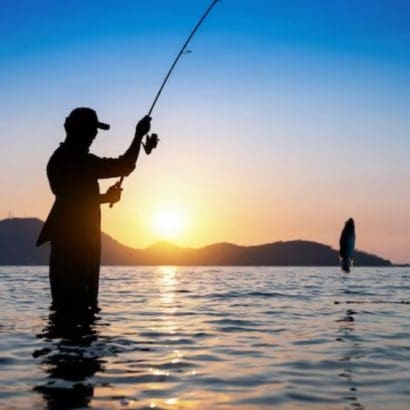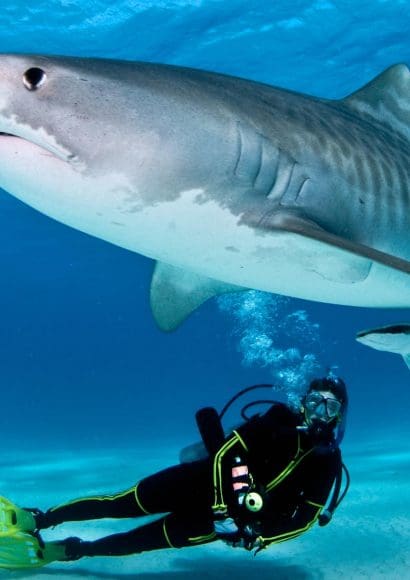
Sharks have long fascinated and frightened us, their streamlined bodies slicing through the water like silent torpedoes. These enigmatic predators, often misunderstood, are far more complex and vital to marine ecosystems than their reputation as mere “man-eaters” suggests. This article takes you deep into their world, uncovering their ancient history, unparalleled anatomy, behaviors, and the crucial role they play in maintaining ocean health.
Contents
- The Ancient Lineage of Sharks: Survivors Through Time🐟
- Anatomy of a Predator: Built for the Hunt🐟
- Behavioral Mysteries: Beyond the Stereotypes🐟
- Dispelling Common Myths About Sharks🐟
- Why Sharks Are Indispensable to Ocean Health🐟
- Conservation Efforts: Protecting the Guardians of the Sea🐟
- Sharks in Popular Culture: Changing the Narrative🐟
- A Future for Sharks🐟
The Ancient Lineage of Sharks: Survivors Through Time🐟
Sharks are some of the oldest creatures on Earth, with their lineage dating back over 400 million years. To put this into perspective, they roamed the oceans long before dinosaurs walked the land.
The Evolution of Perfection
Their evolutionary success can be attributed to:
-
- Adaptability: Sharks have thrived through five mass extinction events, including the one that wiped out the dinosaurs.
- Simple yet effective design: Unlike many species, sharks have experienced minimal anatomical changes because their bodies were already highly efficient early on.
Fossil Evidence: The earliest known shark-like fossils, such as Cladoselache, show streamlined bodies ideal for predation. Over millions of years, sharks diversified into over 500 species, ranging from the colossal whale shark (Rhincodon typus), measuring up to 40 feet, to the pygmy lantern shark (Etmopterus perryi), which can fit in your palm.
Anatomy of a Predator: Built for the Hunt🐟
Sharks are evolutionary marvels, equipped with features that make them apex predators in their environments.
Hydrodynamic Design
Sharks have torpedo-shaped bodies that minimize drag, allowing them to glide effortlessly through water. Their tails, or caudal fins, generate powerful thrusts, making them fast and agile.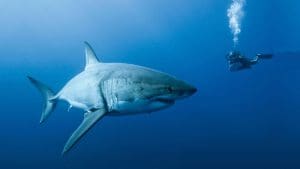
Sensory Superpowers
Sharks possess one of the most advanced sensory systems in the animal kingdom.
-
- Ampullae of Lorenzini: These jelly-filled pores detect electrical signals from prey, even those buried under sand.
- Lateral Line: Running along their bodies, this system senses vibrations, helping them locate prey in low visibility.
- Keen Smell: Sharks can detect a single drop of blood in an Olympic-sized pool.
Regenerative Teeth
Unlike humans, sharks replace their teeth throughout their lives. Some species shed thousands of teeth annually, ensuring they are always ready to feed.
Fun Fact: The bull shark has one of the strongest bites among sharks, capable of exerting up to 1,300 pounds of pressure per square inch.
Behavioral Mysteries: Beyond the Stereotypes🐟
Sharks are far from mindless killing machines. Their behaviors reveal intelligence, adaptability, and even social structures.
Hunting Tactics
Different shark species employ diverse strategies to catch prey.
-
- Ambush Predators: Great white sharks (Carcharodon carcharias) use stealth and sudden bursts of speed to surprise their prey.
- Filter Feeders: Whale sharks and basking sharks passively filter plankton and small fish from the water.
- Pack Hunters: Some species, like the blacktip reef shark, collaborate in groups to herd fish into tight schools.
Social Dynamics
While many species are solitary, others, such as hammerheads, form schools for protection and mating purposes. These groupings can include dozens or even hundreds of individuals.
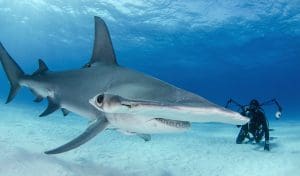
Intelligence and Curiosity
Sharks are curious creatures, often investigating objects or humans in their environment. This exploratory behavior is frequently mistaken for aggression. Dive into the flavorful world of “Smoked Fish Dishes: A Culinary Adventure Worth Exploring“ and uncover new tastes to savor.
Dispelling Common Myths About Sharks🐟
Sharks are often vilified in popular culture, but many of these fears are rooted in misconceptions.
Myth 1: Sharks Are Bloodthirsty Killers
Truth: Out of over 500 shark species, only about 12 are considered potentially dangerous to humans. Attacks are rare, with fewer than 100 reported annually worldwide.
Myth 2: Sharks Target Humans
Truth: Most shark attacks occur because the shark mistakes a swimmer or surfer for prey, such as a seal. Bites are often investigative, not predatory.
Myth 3: Sharks Are Invincible
Truth: Despite their resilience, sharks are vulnerable to overfishing, habitat destruction, and climate change. Their populations are declining at alarming rates.
Why Sharks Are Indispensable to Ocean Health🐟
Sharks are vital for maintaining the balance of marine ecosystems. As apex predators, they regulate populations of other species, preventing overgrazing of seagrass beds and coral reefs.
-
- Maintaining Genetic Health: By preying on the sick and weak, sharks help keep prey populations healthy and robust.
- Supporting Biodiversity: Their presence influences the behavior of other species, promoting a diverse and balanced ecosystem.
Ecological Ripple Effects: The decline of sharks can lead to a cascade of negative impacts. For instance, fewer sharks mean an increase in prey species, which can overconsume vital habitats like coral reefs, leading to their collapse.
Conservation Efforts: Protecting the Guardians of the Sea🐟
Given their critical role in marine ecosystems, conserving sharks is a global priority.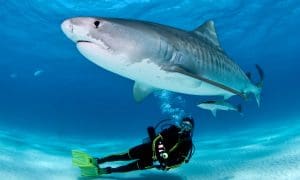
Marine Protected Areas (MPAs)
MPAs provide safe habitats where sharks can breed and thrive without the threat of fishing or habitat destruction.
Combatting Shark Finning
Shark finning, a practice where fins are removed, and the body discarded, is one of the leading causes of shark mortality. International bans and consumer education campaigns aim to reduce demand for shark fin soup.
Advancing Research
Technological advancements, such as satellite tagging, allow scientists to monitor shark movements and better understand their behaviors and migration patterns.
Sharks in Popular Culture: Changing the Narrative🐟
For decades, sharks have been portrayed as villains in films like Jaws. While this has fueled fear, it has also sparked interest in their biology and conservation. Discover how to transform your meals with “5 Recipes with Corvina Fish to Elevate Your Culinary Skills“ and add a gourmet touch to your table.
From Fear to Fascination
Modern documentaries and social media campaigns are reshaping perceptions, highlighting sharks’ beauty and ecological importance.
-
- Positive Impact: Documentaries like Blue Planet II have brought sharks’ plight into the global spotlight.
- Public Engagement: Initiatives like Shark Week educate millions about the need to protect these magnificent creatures.
A Future for Sharks🐟
Sharks are more than just apex predators; they are symbols of resilience and adaptability. Protecting them ensures the health of our oceans and, by extension, our planet.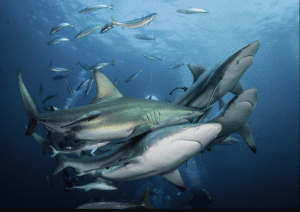
Understanding their secrets not only satisfies human curiosity but also inspires action to preserve these enigmatic predators for generations to come.


